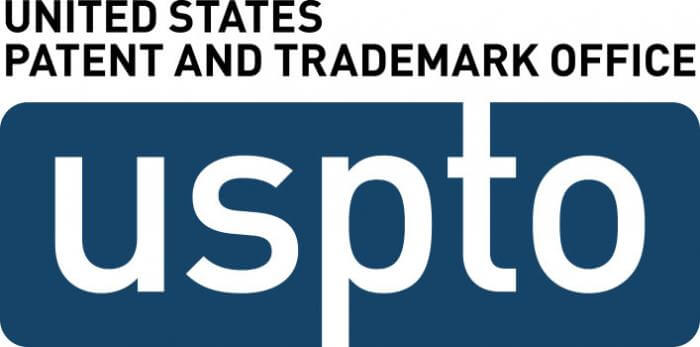Supreme Court to Decide on Copyright Damages and Time Limits in Warner Music Case
Takeaway: The U.S. Supreme Court has agreed to hear a case involving copyright damages in a lawsuit filed by a Miami music producer against Warner Music’s Atlantic Records label, which has raised questions about the time period during which plaintiffs can recover damages, following contradictory rulings by lower courts.
The U.S. Supreme Court has agreed to hear a case, Nealy v. Warner Chappell Music, Inc., that revolves around the duration for which plaintiffs can seek damages in copyright infringement cases, as there is a three (3) year statue of limitations. This legal battle stemmed from a lawsuit filed by Sherman Nealy, a Miami music producer, against Warner Music’s Atlantic Records label, where Nealy claims his rights to the 1984 song “Jam the Box” were violated when hip-hop artist Flo Rida used elements of it in his 2008 song “In the Ayer.” Nealy alleged that Atlantic Records, Warner Chappell, and Artist Publishing Group had obtained invalid licenses to use his music, contending that these licenses were issued without his permission while he was serving a prison sentence for cocaine distribution.
The central question in this case pertains to the time period during which copyright damages can be pursued. While a Florida-based U.S. District Judge had ruled in favor of Atlantic Records, stating that Nealy could only seek damages for the three years preceding the lawsuit, the 11th U.S. Circuit Court of Appeals overturned this decision in February 2023, creating a contradiction with rulings in other circuit courts. This legal inconsistency among lower courts prompted the companies that Nealy sued to request Supreme Court review.
Floor Plans Deemed ‘Fair Use’ in Real Estate Marketing
Takeaway: A U.S. district court ruling has affirmed that real estate professionals can use floor plan drawings in marketing listings without infringing on architectural design copyright laws, marking a significant victory for the industry after a series of lawsuits challenged this practice.

A recent ruling by a U.S. district court on behalf of a petition from the National Association of Realtors® has confirmed that real estate professionals can continue using floor plan drawings for marketing listings, as it falls under “fair use” and doesn’t infringe on architectural design copyright laws, a decision seen as a victory for the industry. This outcome resulted from a series of lawsuits that challenged the use of recreated floor plans in real estate marketing.
The National Association of Realtors and other real estate groups had contested the merits of these lawsuits, emphasizing the importance of independent floor plan renderings for property marketing, appraisals, and renovations. Approximately half of home buyers find floor plans valuable when shopping for properties online, and nearly 80% of prospective buyers are more likely to view a home with a floor plan included in the listing. The ruling sets a precedent and is seen as beneficial for the industry as a whole, providing clarity on fair use in similar cases.
Walmart Brand Portal vs. Amazon Brand Registry: A Comparison
Takeaway: Walmart and Amazon both offer useful brand registration tools that help companies manage their intellectual property, though each have their own strengths.

In the world of e-commerce, brand protection and visibility are paramount. Walmart Brand Portal and Amazon Brand Registry are two tools that help businesses achieve these goals, but they differ in their focus and value.
Walmart Brand Portal:
– Enhances customer experience with rich media listings.
– Offers brand protection services against counterfeit products.
– Provides access to analytics and marketing tools.
– Promotes direct customer engagement.
Amazon Brand Registry:
– Focuses on intellectual property protection to combat counterfeits.
– Allows for control over product information and content.
– Offers global reach and marketing tools.
The choice between the two depends on a brand’s specific needs. Walmart’s Brand Portal prioritizes customer engagement, while Amazon’s Brand Registry emphasizes intellectual property protection. Brands may even opt to use both for maximum online presence. In the end, these platforms provide vital resources for brands navigating the e-commerce landscape.
“Taco Tuesday” Is for All to Enjoy!
Takeaway: Taco Bell has successfully reclaimed the “Taco Tuesday” trademark, making it available for all restaurant owners to use.

Taco Bell has successfully reclaimed the trademark for “Taco Tuesday” from Taco John’s and Gregory’s in New Jersey, making the phrase available for use by all restaurant owners in the case Taco Bell Corp. v. Taco John’s Int’l, Inc., which has been settled. As part of the settlement, Taco John gave up its exclusive trademark registration to “Taco Tuesday.” This means no eatery, including Taco Bell, can claim exclusive rights to the term, opening it up for widespread use in marketing. Taco Bell celebrated this victory by offering free Doritos Locos Tacos to its New Jersey app-based loyalty program members. The legal battle over the trademark was costly for small businesses like Gregory’s, with estimated legal fees of at least $100,000, and the chances of winning were deemed very low.
Federal Circuit Rules USPTO Lacks Authority to Cancel Trademark Over Inaccurate Continual Use Filing
Takeaway: In a divided ruling, the Federal Circuit panel decided that the USPTO lacked the authority to cancel a trademark registration due to an erroneous incontestability filing, highlighting that incontestable status is distinct from the initial registration.

A Federal Circuit panel, in Great Concepts, LLC v. Chutter, Inc., has ruled that the U.S. Patent and Trademark Office (USPTO) lacked the authority to cancel a trademark registration based on an inaccurate incontestability filing, specifically in the case of Great Concepts LLC’s “Dantanna’s” trademark registration. The panel’s majority argued that the USPTO erroneously believed it had the power under Section 14 of the Lanham Act to revoke the trademark due to a false declaration in a Section 15 submission asserting incontestability by continual use over five (5) years. Incontestable status offers enhanced legal protection to trademark owners after five years of continuous use. The majority emphasized that the authority to cancel a trademark is distinct from challenging incontestability, leading to a remand of the case for further consideration. The dissenting opinion expressed concerns about the lack of consequences for submitting fraudulent incontestability affidavits, suggesting that this could misinform the public regarding a trademark’s status.
USPTO Issues One Millionth Design Patent
Takeaway: The USPTO issued its milestone 1 millionth design patent, highlighting the role of design patents in protecting unique product appearances for small businesses and inventors.

The US Patent and Trademark Office (USPTO) has issued its 1 millionth design patent to Agustina Huckaby, a licensed cosmetologist from Fort Worth, Texas, for the ornamental design of a dispensing comb, U.S. Patent No. D1,000,000. This achievement comes 181 years after the first design patent was granted in 1842.
Design patents protect how something looks, not how it functions, and they are crucial for small businesses seeking funding. The number of design patent applications has been rising, showcasing inventors’ creativity and the USPTO’s dedication. This milestone highlights the economic significance of design patents in driving consumer demand and fostering new businesses and jobs.
Cislo & Thomas LLP Spotlight
Daniel M. Cislo, Esq. Assists in $62 Million Case Decision as Expert Witness

In a recent case Skye Orthobiologics LLC et al. v. CTM Biomedical, LLC et al. involving biomedical product using placental tissue extraction and use for wound and joint healing, Cislo & Thomas Managing Partner Daniel M. Cislo. Esq. served as an expert witness for the plaintiffs, helping them secure a victory of over $62 million in damages by a California Federal Court in Los Angeles.
With 35 years of experience, Daniel Cislo, Esq. has been working in intellectual property law for most of his life, and the benefit of these years of experience is the ability to testify as an expert witness in court. An expert witness, defined as an individual with reliable and extensive understanding of a specific subject matter, is a valuable resource during trial. Their role is to understand complex information and provide credibility to help non-experts make informed decisions. If properly used, an expert witness can significantly strengthen an entire case. Daniel Cislo has been an expert witness in 22 cases.
For you attorneys, should you find yourself needing an intellectual property expert witness in court, consider Daniel Cislo of Cislo & Thomas LLP.



